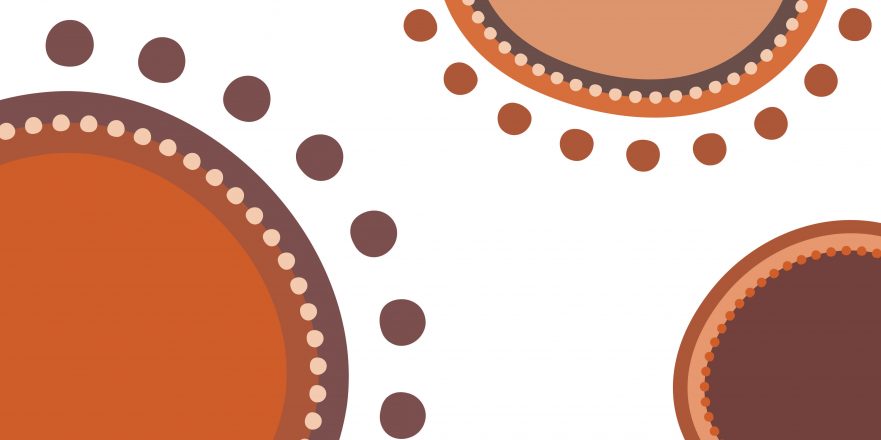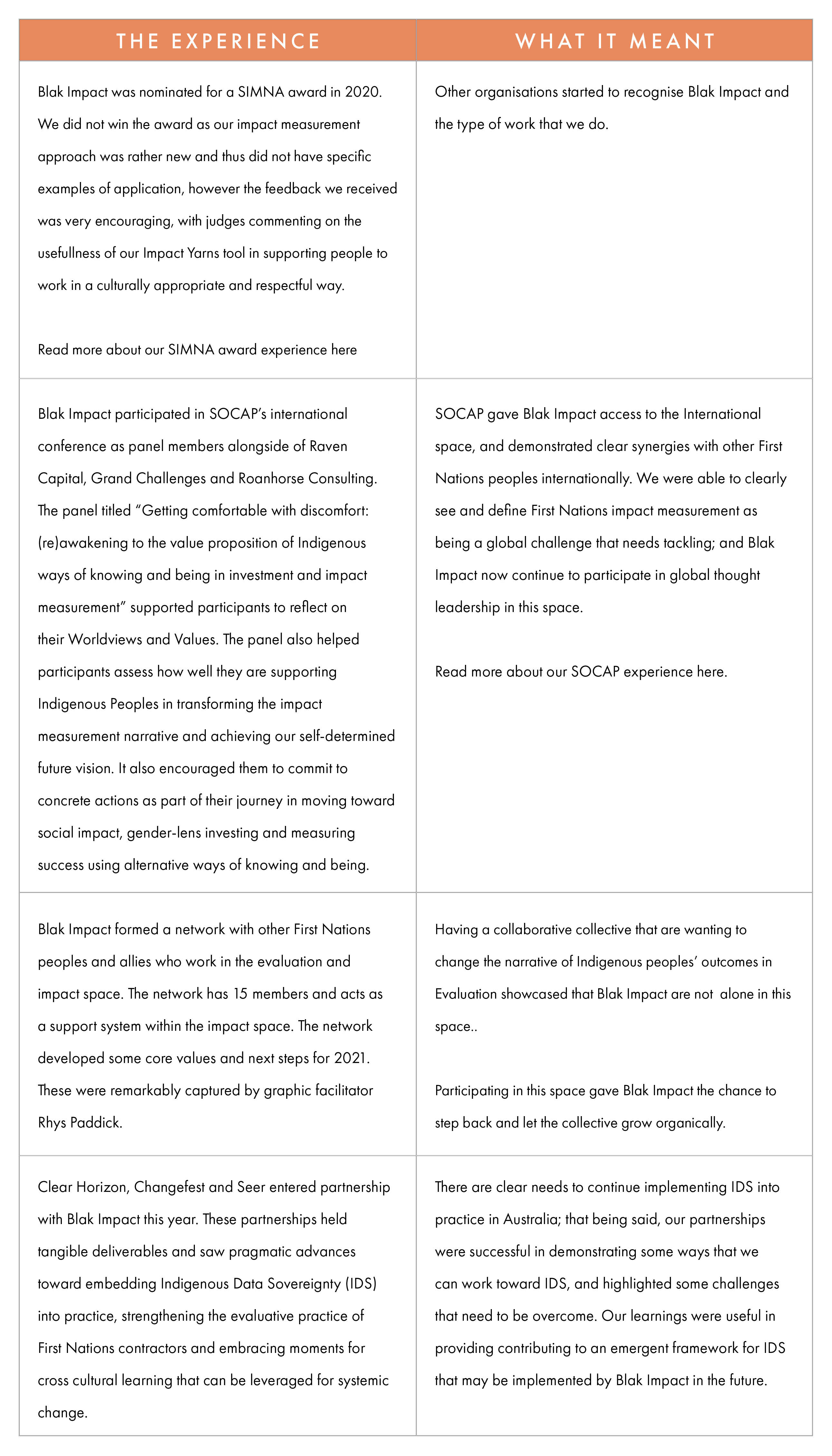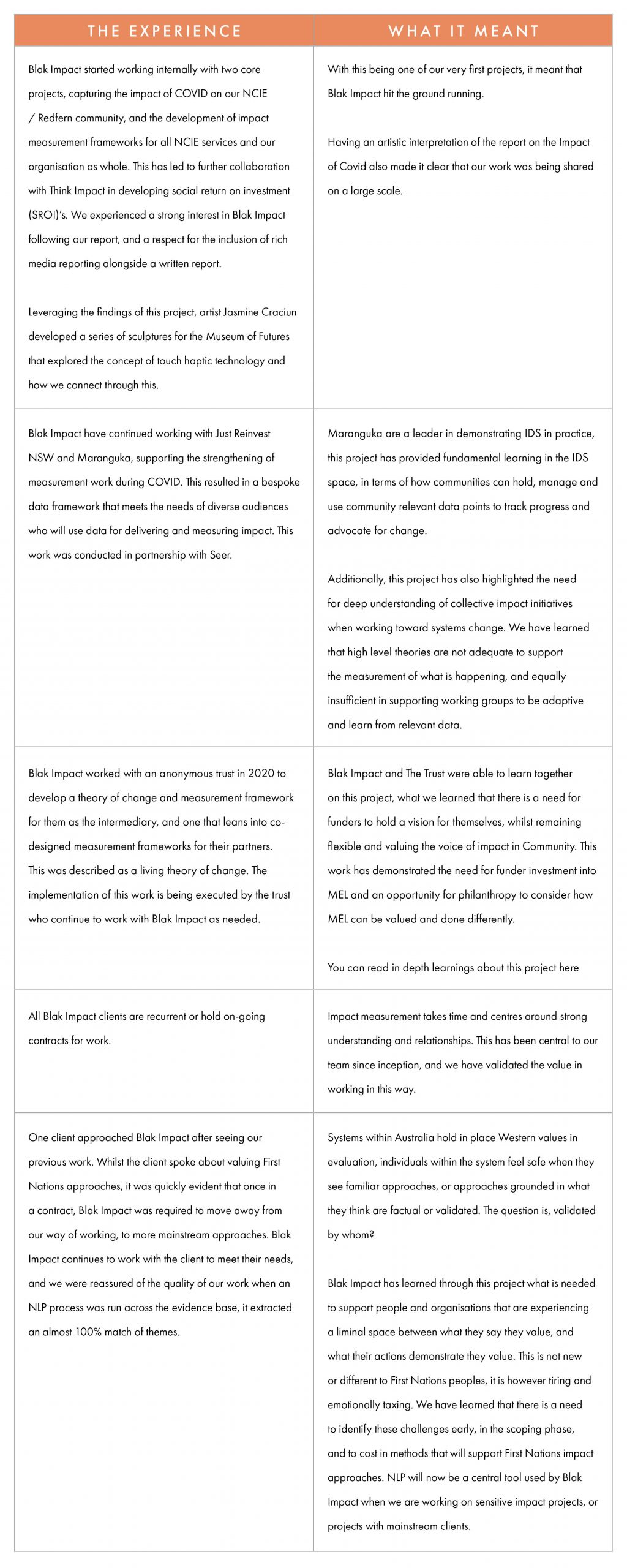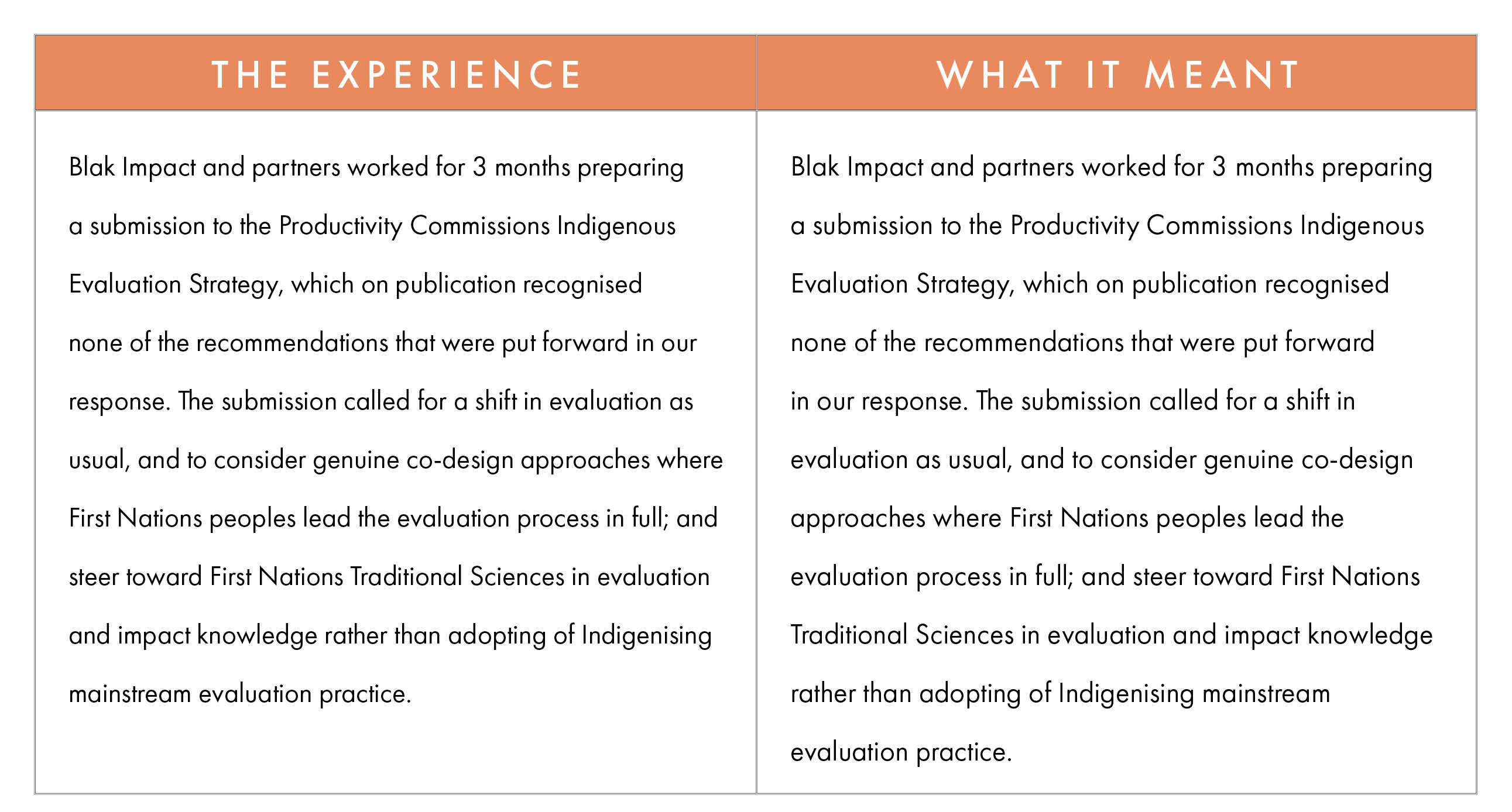Where and how our dreaming landed in the impact landscape
After almost 12 months of work, Blak Impact have had an opportunity to consider the feasibility of a small First Nations social enterprise in the impact space. We have unearthed some insights that the team felt was worthy of sharing for learning and growth.
How we engage with partners, client’s and the broader system
Blak Impact have four core streams with which we engage and work with our clients:
- Blak Design – Helping organisations to design culturally grounded and First Nations approaches and initiatives
- Blak Monitoring, Evaluation and Learning – Applying old and new ways to showcase change and impact through a First Nations lens
- Blak Readiness Building – Helping individuals, enterprises and communities build their readiness to think about, create and share impact differently
- Blak Knowing, Doing and Being – Shaping and disrupting the system by sharing our wisdom
Our approach to working in the impact space is rather unique; as a team we hold diverse skills that are brought together to form a cohesive, skillful and needed service. We pride ourselves on delivering inherent First Nations expertise and insights, this is our greatest value. The team are well versed in walking in two worlds, and providing a safe conduit for translating First Nations priorities, experiences and impact.
The team experienced mixed responses to our approach. Whilst this was hard to digest at times, we saw this as our greatest learning, and the most important reflection to share beyond our team. In order to give these reflections adequate context, we choose to share the highlights, the challenges and how we digested this into meaningful reflection for practice change.
Our Experience
The below table shares some of our experiences from the past year, and what the team felt that meant for us as First Nations peoples and as a unique First Nations unit with a point of difference in the impact space:
With partners
With Clients
In the broader system
Our key insights for other First Nations evaluators and change makers starting out
An end-of-year break was well enjoyed by the Blak Impact team, each of us taking time to connect with family, friends, nature and, importantly, ourselves. Based on our experience in the year, some of the things we reflected on as a team, and as individuals were:
- What it means to be a First Nations thought leadership and consulting social enterprise; what are our expectations of ourselves and how are they aligned with or differing from the expectations held by clients
- Exhaustion creeps into the work space very quickly, and as First Nations people, our work is often our life, and there is no clear on and off moment; so we started implementing self-care measures that we can strengthen and hold central as we progressed through the year.
- Evaluation and social research still feels like it has a way to go to be held by Community whereby co-design truly embedded into practice. As change makers, we must continue to advocate for change for our peoples, regardless of the systematic push back we experience along the way.
What all this means for our practice going forward
Very little is the answer; but these insights do help us solidify our approach, who we should work with, the jobs we take on, our theory of change and how we define our strengths and differences in the impact space.
There are some key principles that we adopt at Blak Impact to keep breaking down narratives in evaluation, and these are things that others can also adopt or support when commissioning evaluation:
- Put data and narrative in the hands of Community – have a process where by Community have a safe and central platform to hold and control data; and authorise the narrative being told with the data
- First Nations staff to lead projects with Community – all First Nations projects should be led by First Nations people
- Spend time “just being” in Community – build relationships, bring your whole self to the project and spend time understanding the experience of Communities – don’t just fly in and fly out
- Engage Community member/s on each project – Community are experts on matters of Community, you should always have a local First Nations person engaged on your project to ensure its safe passage
Call to action
In 2020, Clare Nolan wrote about tired narratives in evaluation, and potential new narratives that could be adopted. We have found that as a new team in the impact space, many organisations and individuals share our hope and vision for the future. However, when we deliver on new narratives, some clients struggle with the discomfort that comes with something new and disruptive, and we are required to adopt mainstream, and from our perspective, more “white” ways of evaluating so our client feels safe.
So, as we all step into 2021, we challenge others to reflect on the narratives and systemic racism that exists not only in the evaluation field, but how it may be perpetuated by clients who struggle to value Aboriginality as expertise in evaluation and other fields.





